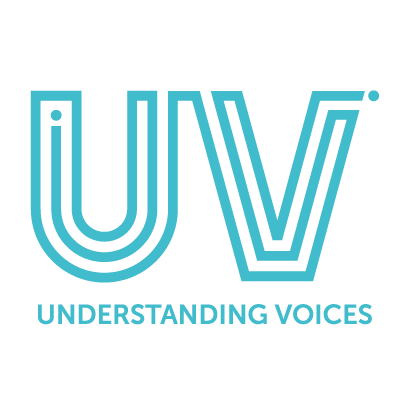Hearing voices while studying
What’s it like to hear voices while you’re studying?
Hearing voices when you’re at school, college or university, can bring lots of different challenges – for voice-hearers of all ages and backgrounds.
Some voices can make it difficult for voice-hearers to concentrate in class or lectures, or focus on reading, absorb information, or perform under the pressure of exams. Some voices may be louder, more distracting or difficult in certain spaces, such as libraries, lecture halls or busy social areas. And some voices can make it hard for students to navigate the competing demands of tight deadlines, socialising, individual or group work.
For young people leaving home for University, voices may be especially difficult. Voices can become more overwhelming during periods of transition, times of high stress, sleeplessness, insecurity or financial difficulties. Critical or belittling voices, undermining a young person’s self-esteem or confidence, can also affect the way that students see themselves, or have a detrimental impact on their abilities, making it difficult for them to achieve their academic potential or causing some to postpone or discontinue their studies.
While hearing voices can be challenging while studying, some voices can be helpful. Some voice-hearers find their voices encourage them with their work, reassure them that they’re doing the best that they can, and help them to make friends or work more effectively in groups. For example:
I sometimes recall stuff I am learning to the voices. They usually learn the stuff faster than I can and can occasionally throw me a hint.
Universities, schools and colleges have policies and procedures in place to support students who are struggling. These range from informal emotional support to formalized options such as mentoring, counselling or psychotherapy, as well as a range of practical assistance or financial support. Some universities have also started Hearing Voices groups for students.
You can find out about what is available in your institution by contacting student support services or your University counselling team. Suggestions on how to open up conversations about voices with teachers or lecturers, as well as reflections from people who have done this themselves, is available here.
Managing voices while studying
As with managing voices in the work place, voice-hearers use a variety of different strategies in order to cope with their experiences in the classroom or lecture theatre, while doing homework, essays or assignments and revising for exams. These may include stress management techniques, choosing where to study carefully, talking back to the voices, drawing boundaries with them or ignoring them completely.
Explore the personal accounts below or see Coping with Voices for more ideas.
Personal reflections
Explore personal experiences and reflections on coping with voices while studying.
One morning lecture I was 5 minutes late and I could not walk into the room. I panicked. I went downstairs into a small room – I called it my ‘Secret Bog’ – so I went there and had a smoke. It was 8 hours before I could leave it again. I spoke with my tutor, we had a coffee and a chat, and I told him what had happened. He said, “In future, if you are late for one of my lectures I’ll have the door open for 15 minutes if you’re not in.” The tutor told the other lecturers about it, and they agreed to do the same thing if I was late. I needed to sit in a certain place, and people accepted that.
Barry*
When studying, I invite the more serious voice to contribute, but ask the others to wait until later on.
Myles*
I have used my phone to pretend I am talking to someone else when I’m in a busy place. When I was studying at college or in a lecture I would try focusing on items in the room around me, or try and write down what the lecturer was saying to help me concentrate.
Zachary*
The voices get very stressed during exams, so I have been trying to talk to them to reassure them, saying “I am about to do an exam and the invigilator is there to supervise and not going to attack me.” This has worked very well, though one time when very stressed I said it aloud and for the rest of the exam the invigilator look terrified I would attack her.
Lucy*
I am in University, and my voices can sometimes believe that people around me are talking about me and planning to attack me. So when studying I do it in my bedroom and not the library, so I can focus and the voices relax.
Heather*
My therapist encouraged me to talk back to them. Sometimes I questioned them, other times I told them to “shut up.” I also learnt to set boundaries and would ignore the voices when I was studying. I found that when I stopped being frightened of the voices, they became less critical. Sometimes the voices stopped completely for several hours or days. Stress was often a trigger for hearing voices, so I learnt ways to reduce it, such as practising mindfulness.
Find out more
Read
Emily Knoll (2018). Learning to live with hearing voices. BMJ – A short article in which Emily Knoll reflects on her experience of hearing voices during her doctorate.
Rachel Waddingham (2015). The enemy within: People who hear voices are being encouraged to talk back. The Independent – Contains Rachel’s account of hearing voices as a student.
Watch
Eleanor Longden (2013). The Voices in My Head. TED – Eleanor’s 2013 TED talk shares her experience of hearing voices during her University studies.
